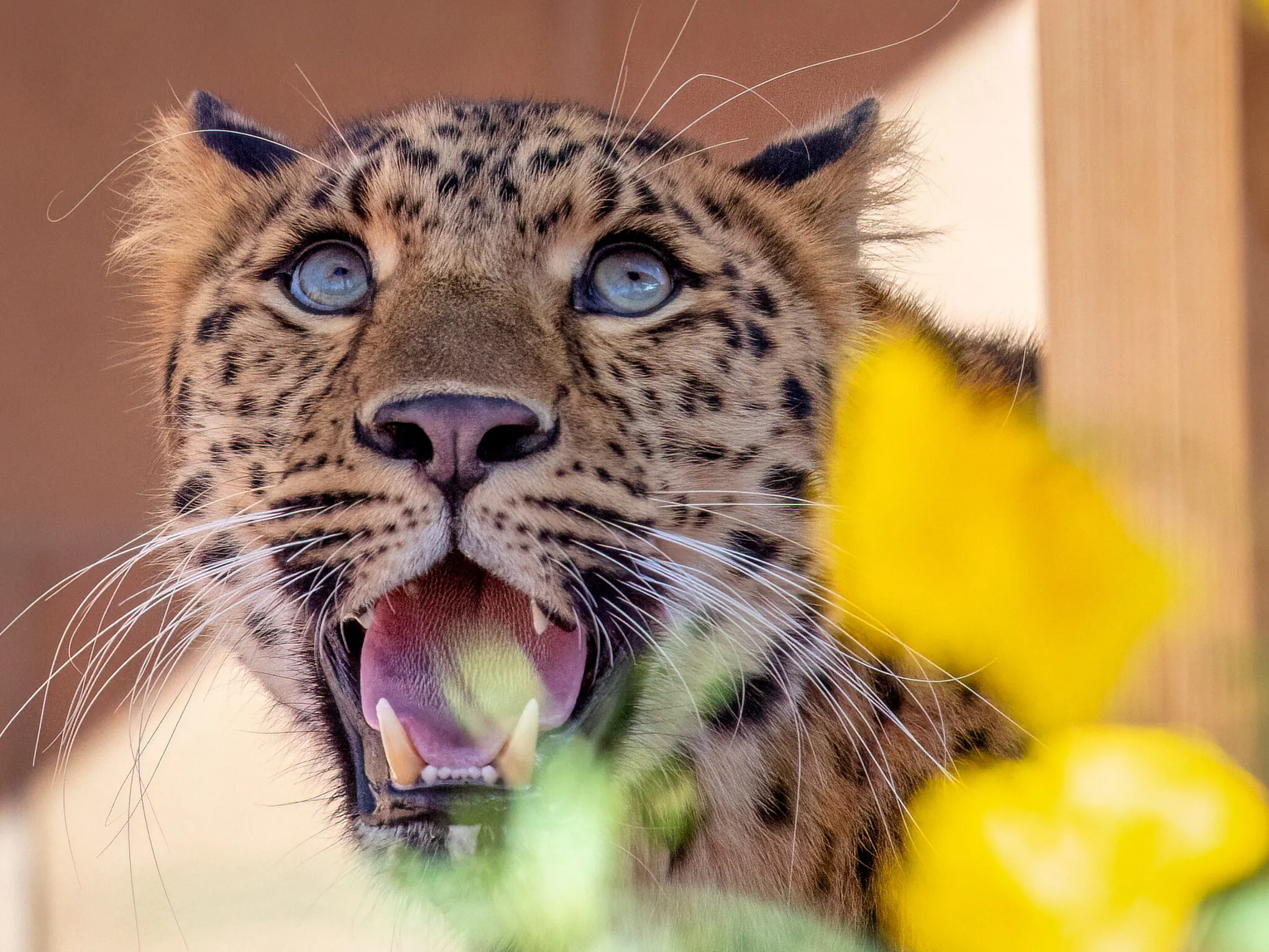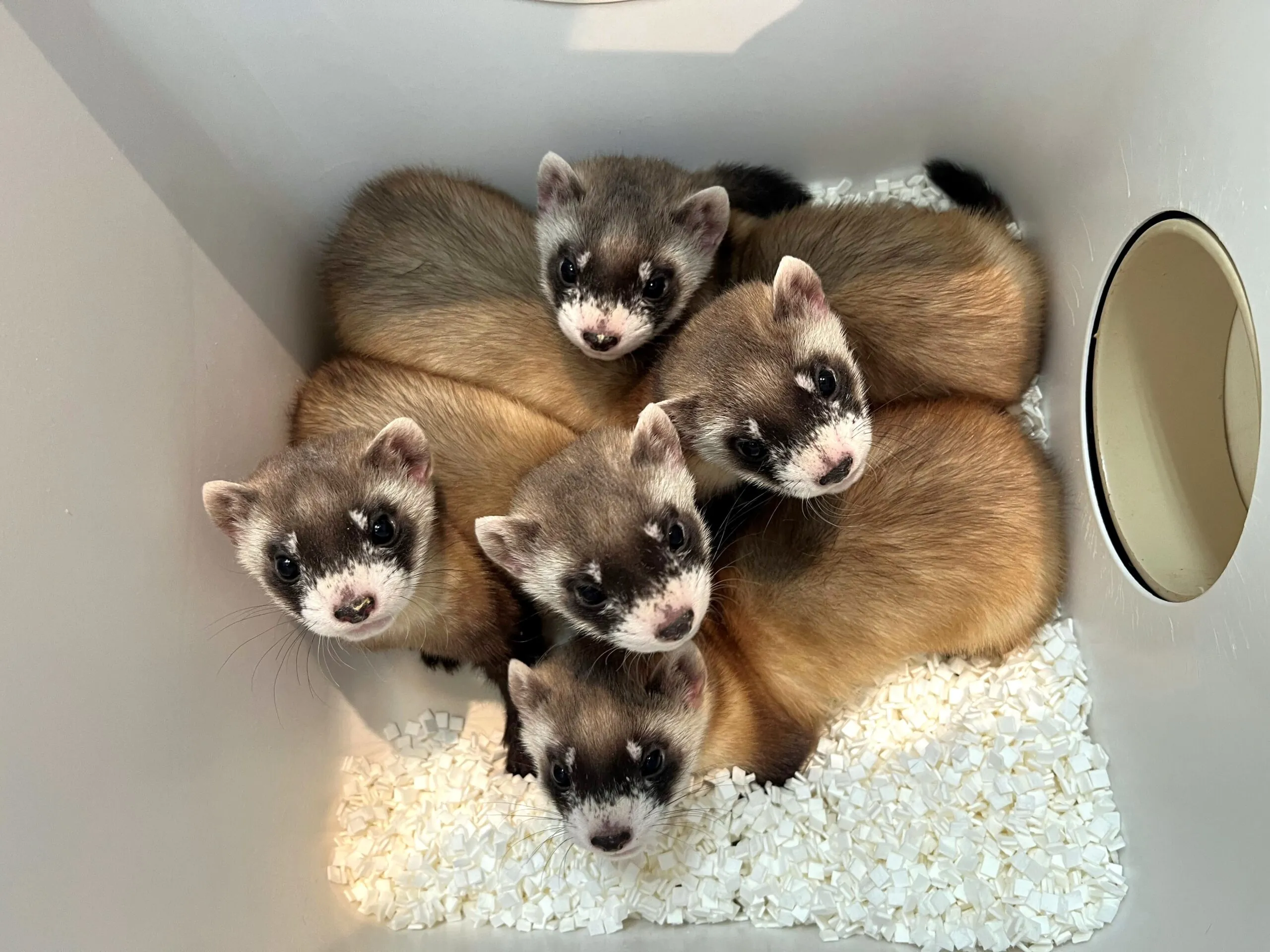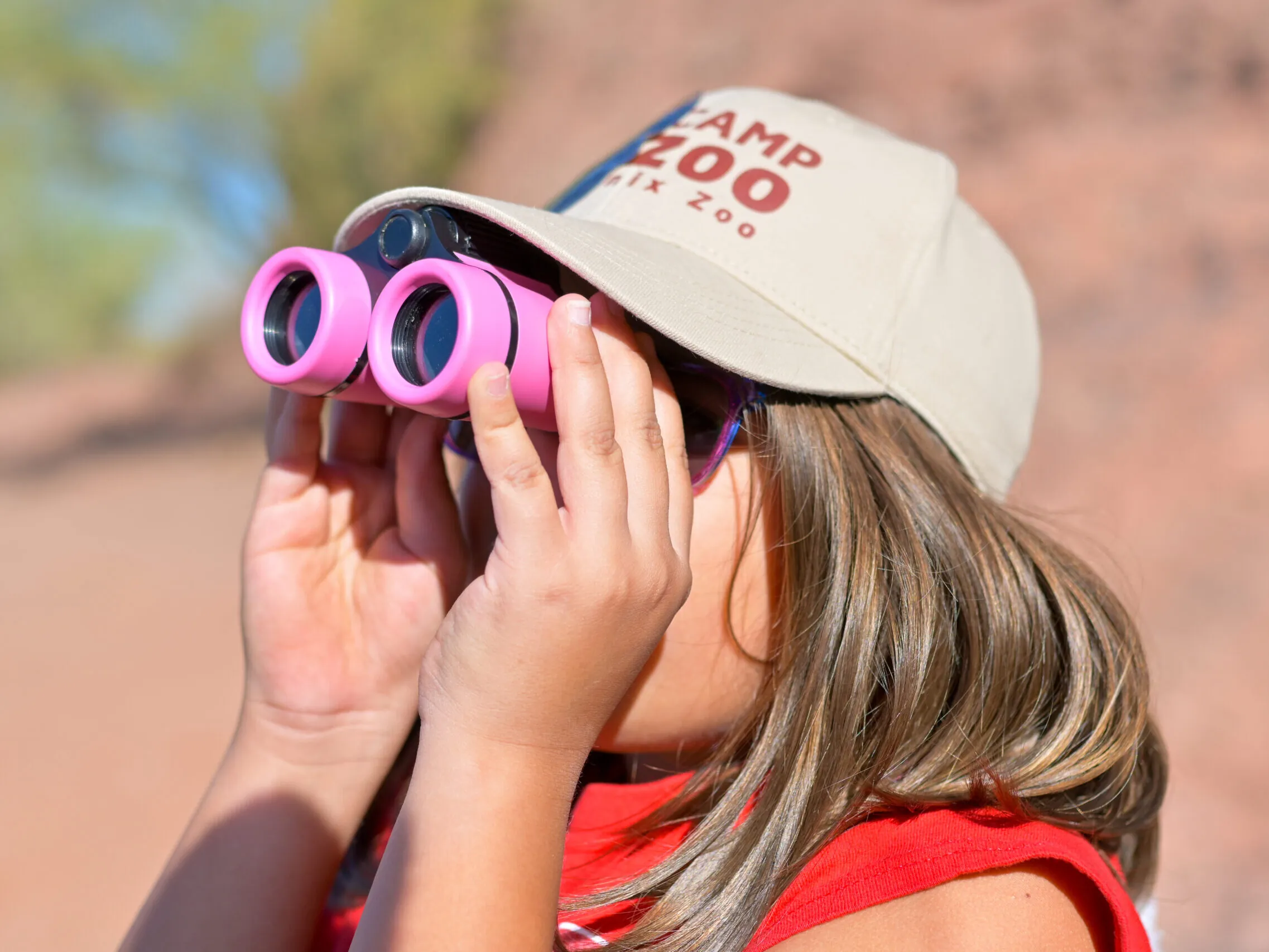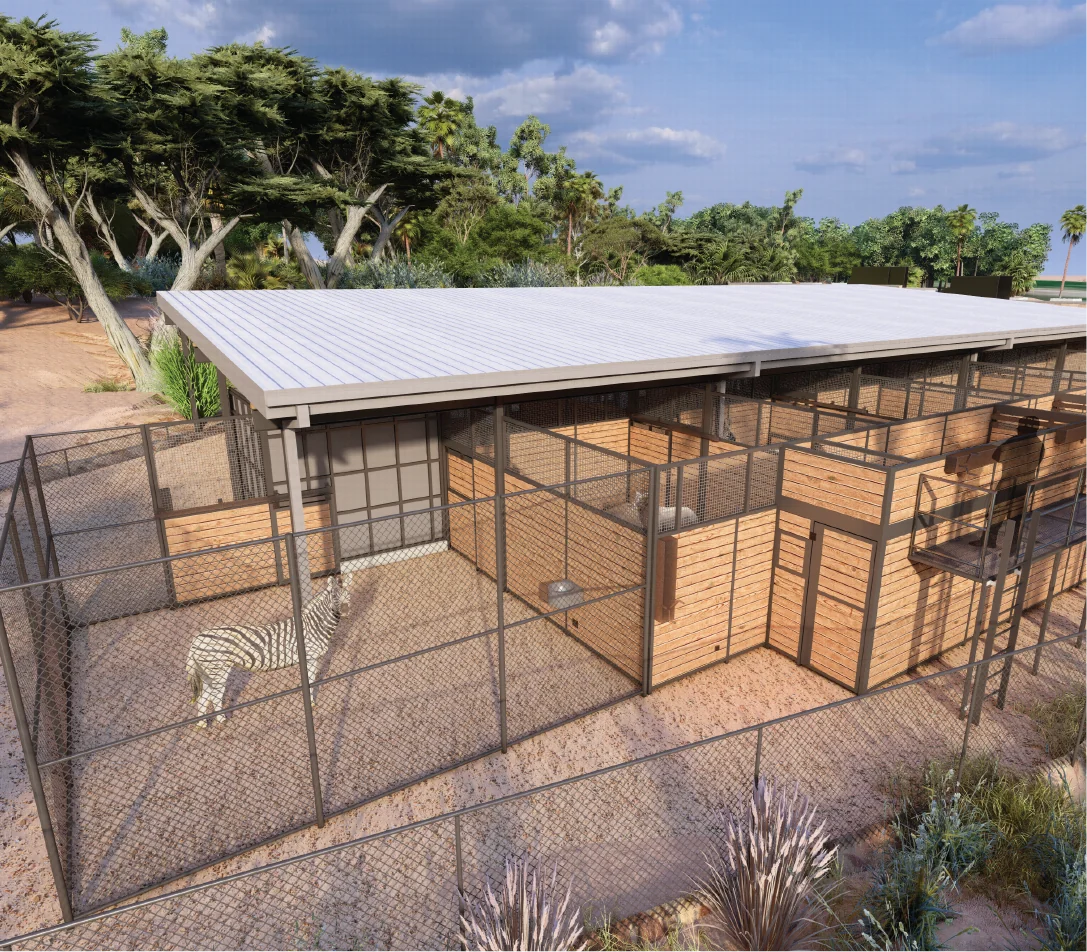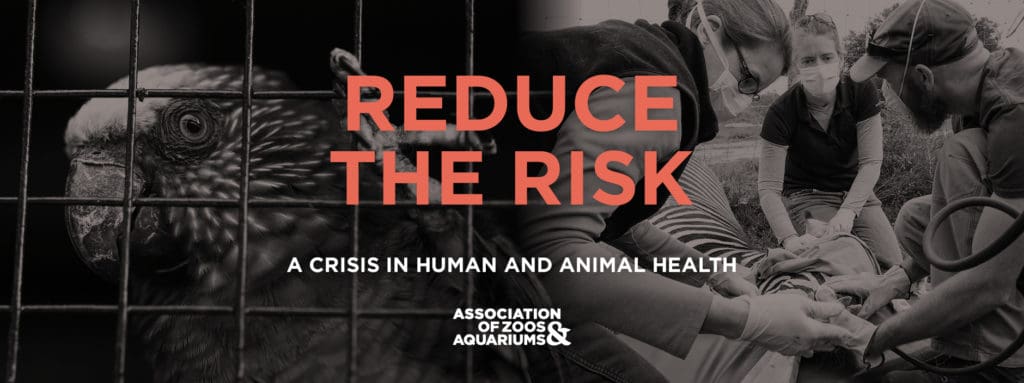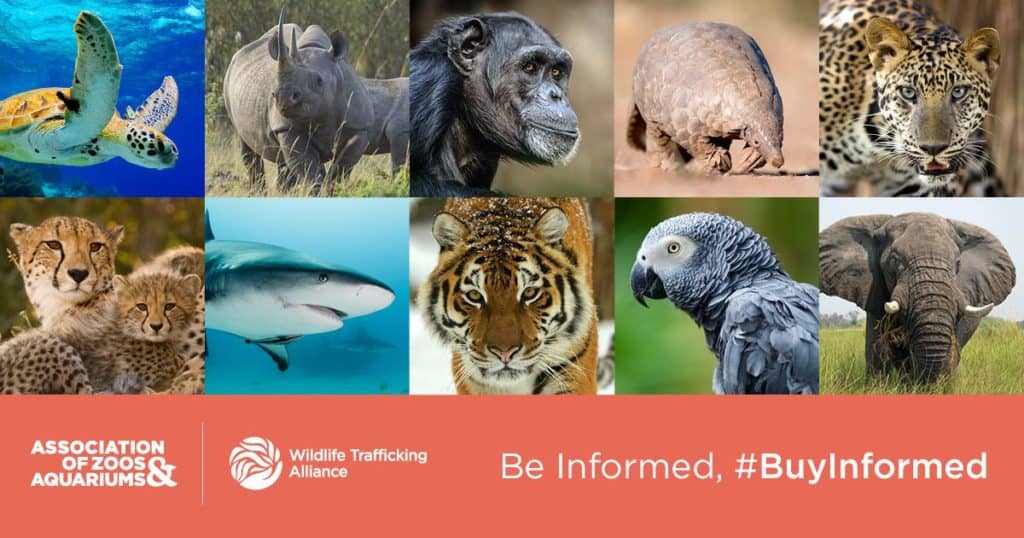World Wildlife Day
Wildlife trafficking is an international crisis that has devastating impacts to both animals and humans
March 3 is World Wildlife Day!
Wildlife trafficking, which is fueled by an unprecedented demand for wildlife and wildlife products, is a significant threat to wildlife, driving many threatened and endangered animal species to the brink of extinction.
Wildlife experts have confirmed that if we don’t act quickly, trafficking will wipe out many endangered species in our lifetime.
Furthermore, wildlife trafficking poses risks to human health and welfare, damages the global economy, and fuels transnational criminal networks and government corruption.
A 2019 UN report warns that one million species are now at risk of extinction, listing poaching as one of the main drivers of this decline.
WTA Members Leading the Way
The Phoenix Zoo is working with the Wildlife Trafficking Alliance (WTA) to help combat wildlife trafficking and protect endangered species from illegal trade.
The WTA is a coalition of more than eighty (80) AZA-accredited zoos and aquariums, leading nonprofit organizations, and companies that are working together to combat wildlife trafficking by:
(1) raising public awareness;
(2) reducing consumer demand for wildlife and wildlife products; and
(3) mobilizing companies to adopt best practices and help close off wildlife traffickers’ supply chains.
Reduce the Risk
To reduce the risk of future pandemics, wildlife trade that poses a risk to human and animal health must be effectively addressed.
The Reduce the Risk initiative advocates for stricter regulations, enforcement, and transparency on all forms of wildlife trade (both legal and illegal) that pose a threat to human and animal health, and seeks to expand AZA’s work to combat illegal wildlife trade related to human and animal health. By addressing both legal and illegal wildlife markets, we will reduce the risk of emergence and transmission of zoonotic pathogens.
Although there are many factors contributing to the emergence and spread of zoonotic diseases, this initiative will focus specifically on wildlife trade that poses a risk to human and animal health. These efforts are complemented by broader activities within the AZA community that combat illegal wildlife trade and poaching, reduce human pressures on wildlife and ecosystems, address climate change, and employ holistic conservation and One Health approaches that promote optimal health for people, non-human animals, and environments.
About the Wildlife Trafficking
Alliance The Wildlife Trafficking Alliance is a coalition of more than 80 leading nonprofit organizations, companies, and AZA-accredited zoos and aquariums that work together to combat wildlife trafficking by raising public awareness, reducing consumer demand for wildlife and wildlife products, and mobilizing companies to adopt best practices stop wildlife trafficking. WTA is a program of the Association of Zoos and Aquariums.
About the Association of Zoos & Aquariums
Founded in 1924, the Association of Zoos and Aquariums is a nonprofit organization dedicated to the advancement of zoos and aquariums in the areas of conservation, animal welfare, education, science, and recreation. AZA is the accrediting body for the top zoos and aquariums in the United States and 12 other countries. Look for the AZA accreditation logo whenever you visit a zoo or aquarium as your assurance that you are supporting a facility dedicated to providing excellent care for animals, a great experience for you, and a better future for all living things. The AZA is a leader in saving species and your link to helping animals all over the world. To learn more, visit www.aza.org.


